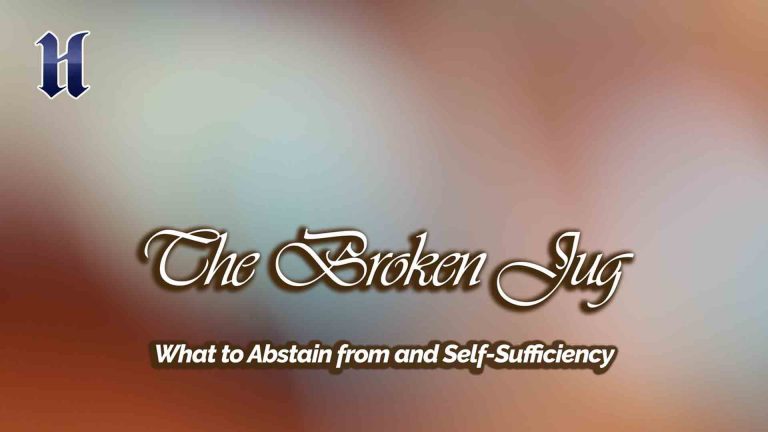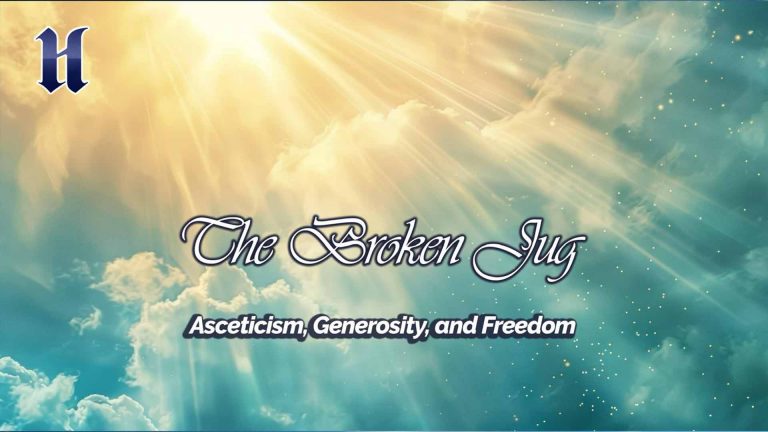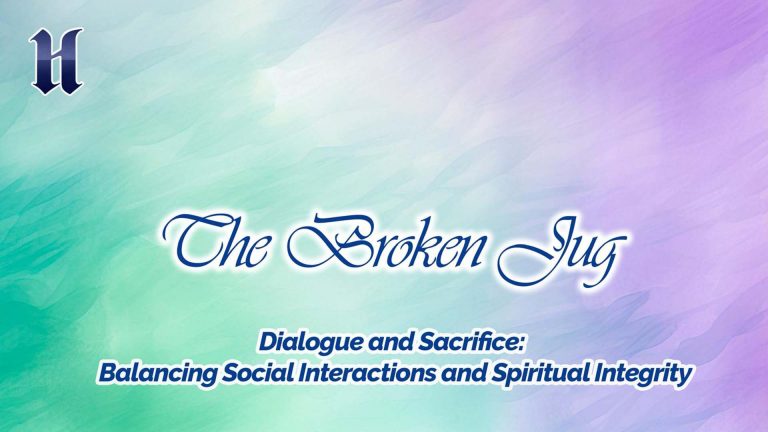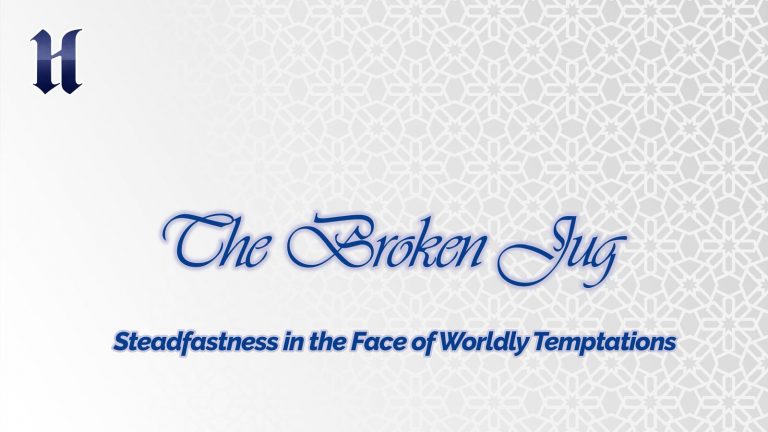Question: One of the gravest social problems of our time is disputes over inheritance. It is seen that sharing inheritance causes disputes and bitter feelings between family members. What is the correct attitude that becomes a believer at sharing inheritance?
Answer: Islam is a system of values, which sets guidelines for a person’s otherworldly life and makes worldly life run in an orderly fashion. Therefore, as in every other issue, the attitude that becomes a believer is acting in compliance with the principles of religion by taking good pleasure of God as a basis and consenting to the share decreed by religion.
Sacrifice and Objectivity
One can make voluntary sacrifices and leave their share to other inheritors who are not as prosperous as them. However, this is a matter to be personally decided by the rightful inheritor. If such voluntary sacrifice is not made, what befalls on other inheritors is to respect everybody’s rights, as decreed by religion.
I would like to refer to a Sufi approach here in order to clarify the situation of inheritors, showing the different levels of attitude according to one’s depth in faith: some people act upon basic religious requirements (shariʿa), some act upon Sufi manners (tariqa), and those who awakened to the truths of faith act upon profound wisdom (haqiqa). In the first understanding: “that belongs to you, and this belongs to me.” In the second, one is ready to share everything: “this both belongs to you and me.” In the third: “this neither belongs to you nor me.” In other words, God is the true owner of everything and mortals are actually nothing more than seeming owners. Now, the basic principles are objective and count for all people. Rights of inheritors are explained by Islamic jurisprudence in detail, under the topic of faraiz (obligatory acts). Therefore, everybody should consent to their share, as explicitly decreed by religion. To reiterate, making sacrifices for the benefit of poorer relatives is encouraged. For example, if they tell me that my father left me some property, I may easily renounce my right of the inheritance since transitory worldly wealth does not deserve so much concern while we are supposed to be concerned about the Hereafter to come. Imposing this attitude on others by overgeneralizing the idea, without their voluntary choice, is an unrealistic expectation that goes against human nature. Such demands naturally cause tension between people. For this reason, decrees of religion are the objective basis.
Disputes between People without Fear of God
As for contemporary disputes of inheritance in our time, in my opinion, the real problem lies with the excessive love for worldly goods and money and the subsequent mentality of, “O Lord of all, let me get it all.” In fact, a person’s calling God “Lord of all,” but wishing to “get it all,” in a selfish way that implies opposing the Lord, is incompatible with the thought of respect for God and righteousness. This consideration stems from greed for wealth and worldliness. However, such passions and fancies are in inverse proportion to religious thought, feelings, and a consciousness of being called to account by God. In other words, having weak faith, taking this world as everlasting, and unending desires lie at the root of these problems. Therefore, the only factor to bring the entirety of such negative feelings under control is consenting to the relevant decrees of religion and believing that this world is transitory. There are numerous pieces of poetry on the transience of this world, celebrated in folk wisdom:
Behold through the eyes of wisdom, this world is but a guesthouse;
No soul stays there for good, what a strange abode it is.
The share of a king and subject alike, is nothing but a plain shroud.
Heavens, who fall for its vanity, don’t they deserve to be called mad?
Given that this is the true face of the world, I see no point in fighting over worldly goods. However, as there is an excessive greed in human nature for worldly possessions, such problems can always arise if not brought under control with the Divine teaching. Nevertheless, one of the ten most illustrious Companions of the Prophet, Abu Ubayda ibn al-Jarrah brought abundant goods from Bahrain and some of the Companions waited for a share. The noble Prophet swore by God and stated that he was not concerned about them being poor, but enjoying prosperity as earlier peoples did and then engaging in jealous rivalry, which would bring them to destruction.
Negative feelings like love of status, greed for profits, passion for worldly goods, and jealousy are like deadly viruses, not for the body but for the soul. However, what makes a person truly human is not the body but the soul. When the soul dies, as pointed out by the Qur’an, a person falls to the level of an animal, or even lower.
Deviation from Lofty Values and Insatiable Greed
Unfortunately, when people lose their values, they run after things of no true worth and do everything in pursuit of their worldly desires and fancies. If people do not receive a serious spiritual training and a feeling of obedience to Divine commandments is not cultivated in them, it is not possible to put a stop to such social diseases. The same factor underlies in all cases of embezzlement, greed for power, wish for destruction, and different forms of oppression. For this reason, when believers turn away from the essential spiritual dynamics to guide them, there is nothing surprising about so many troubles. As far as values taught by religion do not guide individual life, it does not solve these problems effectively any other way. Even if we were to send a secret agent after every corrupt one, they would probably become partners in crime and carry out their job in a more organized fashion. Then you would need to send new agents, with no guarantee that they will cooperate instead. As Bediüzzaman puts it, the real way to solve the problem is to leave an agent in the conscience of each person. Accordingly, if those with fear of God in their hearts lose their balance while trying to put on their shoes and step on another pair of shoes accidentally, they find the owner of those shoes and ask forgiveness for the damage they may have done, with the consciousness of being called to account by God Almighty. When people with such sensitivity sit at a dinner table, they first think whether what they are about to eat is their lawful right or not, whether there is any grain that belongs to someone else is found in it; thus, they lead an entire lifetime along such lines of spiritual discipline.
If the Stones of Charity Could Talk
I think it will be sufficient to consider the example of the charity stones in the Ottoman times, when high morals and spiritual purity were prevalent in society. As it is known, those who would give alms to the poor left the amount they donated in the cavities of those stones, and poor people only took the amount they actually needed. This saved the rich from showing off, and the poor from being humiliated. Those who gave knew—from the blessed saying of God’s Messenger—that alms given in secret extinguishes the wrath of God, as fire extinguishes water. In another hadith, as the seven classes of people who will be provided shelter by God are listed, those whose right hands give without making their left hand realize are counted among those fortunate ones. We can interpret this to mean that when one gives charity with one’s right hand not to even let the person on one’s left notice. So the act of leaving money to those stones of charity reflected this characteristic. And it shows how well they were oriented toward seeking the good pleasure of God. This fine understanding of almsgiving is at the same time a reflection of high morals established in that society, where every individual had a certain spiritual discipline. Nobody took more than the amount they needed. According to Islam, poor people can receive alms, and as far as the amount they take it does not put responsibility on them to give alms themselves. Those who acted with higher sensitivity probably took their daily need only and waited what Divine Providence would show them. Someone else would come, only to take the necessary amount to feed his children. People acting so sensitively will not steal even a single grain. Those who have belief in being called to account on Judgment Day, Paradise and Hell practically need no security forces. Think about the Messenger of God; he transformed the morally corrupt people of his time whose barbarous traditions, for instance, required burying baby girls alive if they were born before a boy, into such an exemplary society that we know no cases of theft except for one or two incidents. We witness no case of immorality except for the hearsay of two or three cases of fornication. In the same way, during the Ottoman rule that encompassed a large geographic area and included millions of people, cases of immorality were extremely few in number. It is understood that in the world made up of individuals who attained an exemplary morality through spiritual training of Islam, an entire society lived as if they had been directly connected to the Hereafter. They lived as if they were walking on a path to Paradise and took every step cautiously, in order not to slip and fall into Hell. This sensitivity made the world a more peaceful place to live. When the world virtually becomes a corridor to Paradise, it is possible to feel the delights of Paradise and the pleasure of living a way that becomes humanity. As for today, with my apologies, you cannot tell how many such cases of immorality take place everywhere. Therefore, we should never forget that until the moment believers find the values that build up their true identity, insatiable greed, disputes over inheritance, and other vices will continue to survive.
This text is the translation of “Miras Kavgaları“






